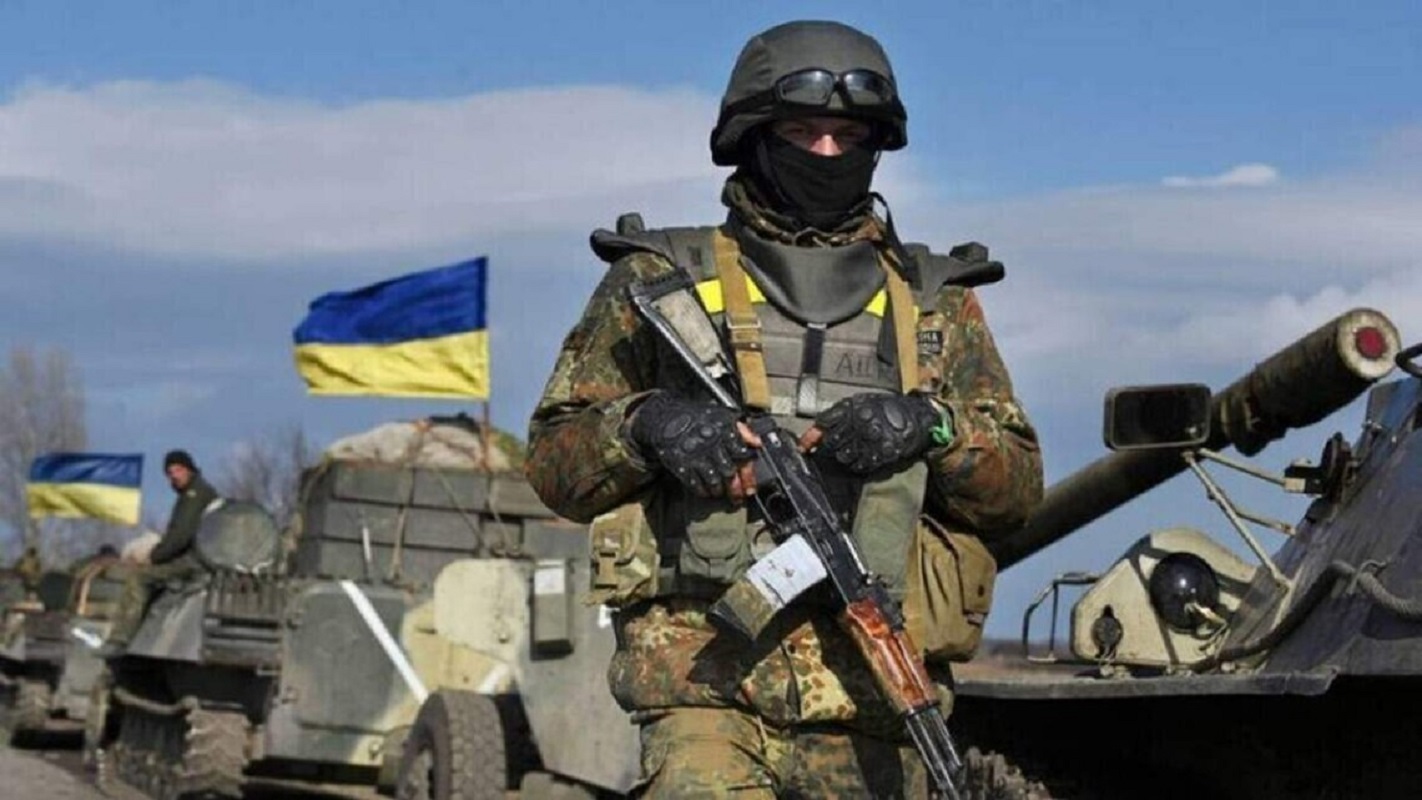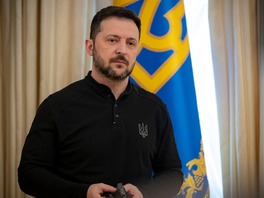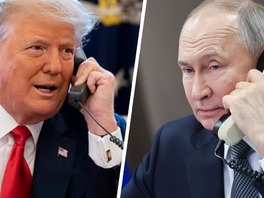Іn February 2022, Russia initiated a full-scale invasion of Ukraine, envisioning a swift capture of Kyiv. The Kremlin dubbed it a ‘special military operation,’ aiming to swiftly crush Kyiv's resistance, demoralize Ukraine and the West, having planed this as punitive action . Contrary to expectations, Ukraine's robust defense thwarted Russian advances in Kyiv, Kharkiv, and Kherson. By fall 2022, Russia's ‘professional’ army faced defeat, compelling Putin to resort to ‘partial mobilization’ and deploying prisoners to the front. Fast forward two years, Ukraine's leadership, victorious in 2022, grapples with the challenge of mobilization, prompting tough decisions. Explore Ukraine's political evolution during this tumultuous period in the article by Apostrophe.
Without Plan B
In February 2022, Russia invaded Ukraine with a conspicuous lack of military resources but in full uniform, suggesting a confidence in a swift resolution. The move hinted at the Russian leadership, particularly Vladimir Putin, anticipating a brief conflict, akin to past events in 2008 in Georgia and occupation of the Crimea in 2014, expecting only verbal expressions of concern from the West.
Two years into the full-scale war, the outlook for resolution remains bleak, with neither Kyiv nor Moscow showing any inclination to capitulate. Putin, leveraging Western useful idiots, floated the notion of "negotiations," yet Moscow currently adopts a wait-and-see approach, closely monitoring the outcome of the upcoming U.S. presidential elections in the fall.
President Zelenskyy, in a recent Fox News interview, acknowledged Ukraine's lack of a "plan B," reiterating the steadfast goal of reverting to the 1991 borders. It is obvious that Putin's regime will never agree with a sovereign Ukraine and will not stop the war by itself.
While Volodymyr Zelensky distanced himself from the comments of former Armed Forces head Valery Zaluzhny regarding frontline stagnation, Ukraine's Defense Forces faced notable challenges this winter due to personnel shortages and a lack of Western military aid, primarily from the USA
Restrained pessimism
The approximately thousand-kilometer-long front line has remained largely unchanged since the fall of 2022. Despite high expectations, the summer counteroffensive by the Armed Forces of Ukraine failed to yield desired results, influencing public sentiment. While there is no widespread panic or despair, certain pessimistic sentiments prevail.
‘Compared to the pre-invasion scenario, Ukrainian society remains unified and resilient. However, comparing current sentiments with those of early 2023 reveals a noticeable increase in pessimism,’ the director of the Institute of Sociology of the National Academy of Sciences Yevhen Holovakha tells Apostrophe.
The Kyiv International Institute of Sociology explored Ukrainian sentiments on territorial concessions for war resolution. In 2022, this stood at 5%, but by late 2023, it neared 20%. Despite the nation's resilience, concerns linger about the future, Holovakha says.
Public and political sentiments are swayed by influential Western media outlets projecting a grim outlook for the Armed Forces. Concerns highlight the need for the U.S. to address internal political challenges and for European countries to ramp up ammunition production.
Avdiivka meat grinder
Personnel shortages, ammunition deficits, and a lack of long-range missiles and aviation in Ukraine's Defense Forces allowed Russians to breach Avdiivka's defenses, capturing devastated ruins of the city. Ukrainian command justified the withdrawal citing the imperative to preserve soldiers' lives, while occupiers hailed it as a significant victory.
The organized retreat had minimal repercussions but fueled domestic political debate on whether the withdrawal should have occurred sooner, sparing Ukrainian soldiers from enduring 60 correctable air bombs daily from the Russians.
‘I won't pass judgment on recent command actions, as we lack a comprehensive view of the city's situation, known to the General Staff. Over the past four months, our forces in Avdiivka, bluntly put, effectively repelled the enemy. Each of our defenders accounted for 20 Russians, underscoring the significant effort required to hold back the opposing forces,’ ex-company commander of the "Aidar" battalion, military analyst Yevhen Dykiy said on Apostrophe TV.
The level of Russian losses clearly does not correspond to what they have achieved. Even considering the strategic significance of Avdiivka as a kind of gateway to the temporarily occupied Donetsk.
‘If the Russians sacrificed around 40,000 lives for Bakhmut, with total casualties reaching about 100,000, the command sent 16,000 individuals to their demise for Avdiivka,’ noted Yevhen Dyky. This admission came from the Russian military propagandist Murz, who was subsequently executed. These losses, according to Dyky, are incomparable with the perceived 'achievement’ by the Russians.
The seizure of Avdiivka marked the Kremlin's initial "achievement" since taking Bakhmut the previous May, contradicting their initial plans to obliterate the entire Ukrainian army within a few days.
Inevitable but difficult decisions
Currently, approximately 18% of Ukraine's territory is under Russian control, encompassing Crimea (annexed in March 2014) and significant portions of the Donetsk and Luhansk regions in the east.
It іs evident that enhancing mobilization in Ukraine is crucial, yet authorities undermine their efforts twice. Firstly, by suggesting controversial bills with a range of anti-constitutional repressive measures, and secondly, by compounding the issue with highly ambiguous statements.
The leader of the parliamentary faction "Servant of the People," Davyd Arahamia, recently emphasized that in the absence of timely assistance from the USA, there may be a need for additional mobilization to address vulnerabilities on the frontlines with living forces. Concurrently, support for the mobilization bill within the presidential faction is lacking, and the count of ‘refusals’ is on the rise — people’s deputies (Ukrainian MPs) are submitting statements on relinquishing their mandates.
‘Beyond the mobilization challenge, new risks emerge, potentially leading to a divide between those advocating for war until victory and those favoring negotiation. Since 2014, a portion of the population has adamantly rejected negotiations with the aggressor. However, there may also be individuals who support negotiations but insist on terms favorable to Ukraine, not the Kremlin. They may call themselves ‘realists’ and advocate for negotiations based on strength and national interests, yet how staunch opponents of negotiations will respond remains uncertain,’ Volodymyr Fesenko, head of the Center for Applied Political Research Penta, noted in a conversation with Apostrophe.
It is also unclear how to bring the Kremlin to the negotiating table, since Putin's ultimate goal is obvious - to destroy Ukraine as a state and Ukrainians as a nation.
Challenges are on the rise
The specter of an emerging political crisis is casting a shadow over the nation. There's a discernible concern within Presidential Office about potential loss of control over the Verkhovna Rada, prompting Volodymyr Zelenskyi to personally convene with faction members for the first time in two years. At the very least, the president aims to prevent any resignations from parliament members to safeguard the institution's legitimacy. The Verkhovna Rada has been operating in a ‘transitional mode’ since last fall, with the current members retaining its functions until a new set of deputies is elected, as per the Constitution.
The president's authority faces added complexity. The legitimacy of the current head of state, post-May 20 of this year, upon the expiration of the current Ukrainian leader powers, is already a concern among Western partners. They are already questioning about how to represent Volodymyr Zelensky officially in diplomatic engagements, negotiations, and agreement signings, as noted by Rostyslav Kravets, the lawyer and head of the trade union Ukrainian Independent Foundation of Lawyers, in a conversation with Apostrophe.
‘Per Article 103 of the Ukrainian Constitution, the president's term is set at 5 years. Therefore, the duration of the office is explicitly outlined in the fundamental law. Volodymyr Zelensky assumed office on May 20, 2019. Consequently, his five-year term concludes on May 20 of the current year. In any case, the matter of legitimacy is currently pressing for Bankova,’ Kravets remarked.
‘The situation could have been resolved by the Constitutional Court of Ukraine, but now there are very big questions about its legitimacy, given the actual illegality of the election of three judges, in my opinion,’ the lawyer added.
Discussions on parliamentary and presidential elections were prominent at the end of last year, but the discourse has since subsided. Zelensky, in the interview with Fox News, expressed confidence in his victory if the elections were held now. Despite a 5-point dip in approval after Zaluzhny's resignation, Zelensky remains at a high 69%, as per KIIS study. Zelensky, confident in his current popularity, hinted at a focus on a new counter-offensive operation before contemplating political decisions or elections.





